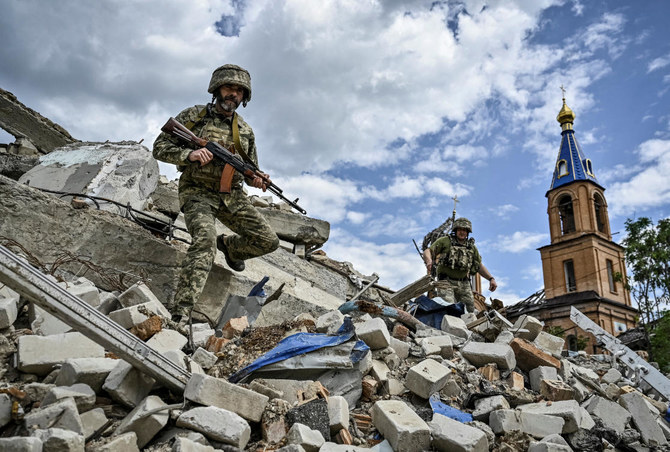NEW DELHI: Former Indian Prime Minister Atal Bihari Vajpayee has died after a prolonged illness. He was 93.
Vajpayee was a Hindu nationalist who in 1998 ordered nuclear weapons tests that stoked fears of atomic war with rival Pakistan. But he later launched a groundbreaking peace process with Islamabad.
That was not the only way in which Vajpayee seemed a political contradiction. He was a moderate leader of an often-strident Hindu nationalist movement, and a lifelong poet who revered nature but who oversaw India’s growth into a swaggering regional economic power.
Vajpayee’s supporters saw him as a skilled politician. Critics accused him and his party of stoking public fears of India’s large Muslim minority. Both sides agreed he was that most rare thing in Indian politics: a man untainted by corruption scandals.
Pakistan Invites Vajpayee to Regional Summit
ISLAMABAD, 21 September 2003 — Pakistan said yesterday it had formally invited Indian Prime Minister Atal Behari Vajpayee to a regional summit in Islamabad in January.
The invitation was handed over to the Indian deputy ambassador in Islamabad on behalf of Pakistani Prime Minister Zafarullah Khan Jamali, the Foreign Office said.
“The letter of invitation from the prime minister was delivered by Director General (South Asia) to the Indian deputy high commissioner at the Foreign Office today,” the office said. A summit of the seven-nation South Asian Association for Regional Cooperation (SAARC) will be held in the Pakistani capital on Jan. 4-6.
The summit was originally planned for January this year, but was postponed after India declined to attend because of tension with Pakistan over the disputed Kashmir region.
The invitation came after Pakistani Foreign Minister Khursheed Mehmood Kasuri dropped a plan to visit New Delhi to deliver an invitation after India said his journey was not necessary.
India has indicated that Vajpayee will attend the summit but Indian Foreign Minister Yashwant Sinha said recently the meeting would not necessarily provide a forum for bilateral talks between Pakistan and India.
The nuclear-armed South Asian rivals have fought two of their three wars since independence over the disputed Himalayan region of Kashmir and came close to a fourth in 2002.
Relations have thawed slightly since Vajpayee issued a call for talks in April, but attacks by separatist rebels in Indian-administered Kashmir, who India says are backed by Pakistan, have undermined chances of peace talks.
Pakistan denies the accusation that it is stoking the 14-year rebellion in Indian Kashmir, saying it only provides political, moral and diplomatic support to what it calls a legitimate Kashmiri freedom movement.
The other members of the SAARC are Bangladesh, Bhutan, the Maldives, Nepal and Sri Lanka.
Both India and Pakistan have pledged to move toward long-suspended dialogue but no dates have been set. The last formal talks were held in July 2001 at Agra in India.
Ambassadorial and transport links were severed by India after it blamed Pakistani-based militants for a fatal gun attack on its Parliament. Nine people and the five gunmen were killed in the December 2001 attack.
In Indian-administered Kashmir, troops killed six suspected militants in a gunbattle yesterday. The battle in the Shopian area south of Kashmir’s biggest city Srinagar began after troops combing the area challenged a group of rebels, a police spokesman said. Three soldiers were also injured in the incident.
Police said the six belonged to the Pakistan-based Lashkar-e-Taiba group. There was no independent confirmation of that.




















